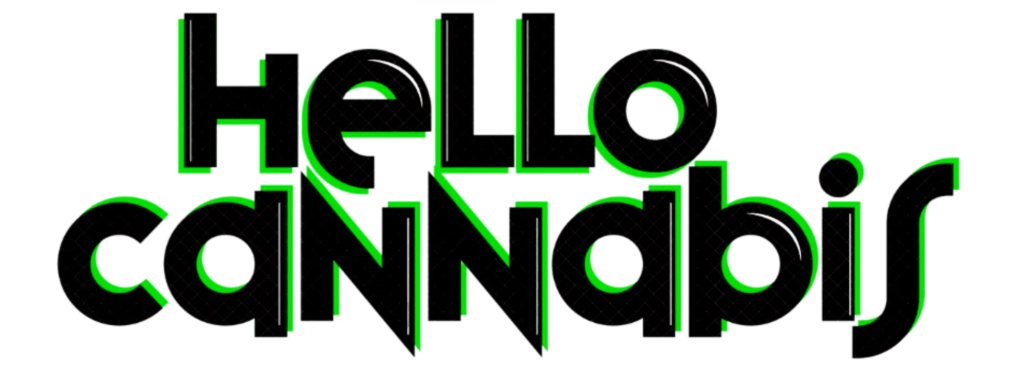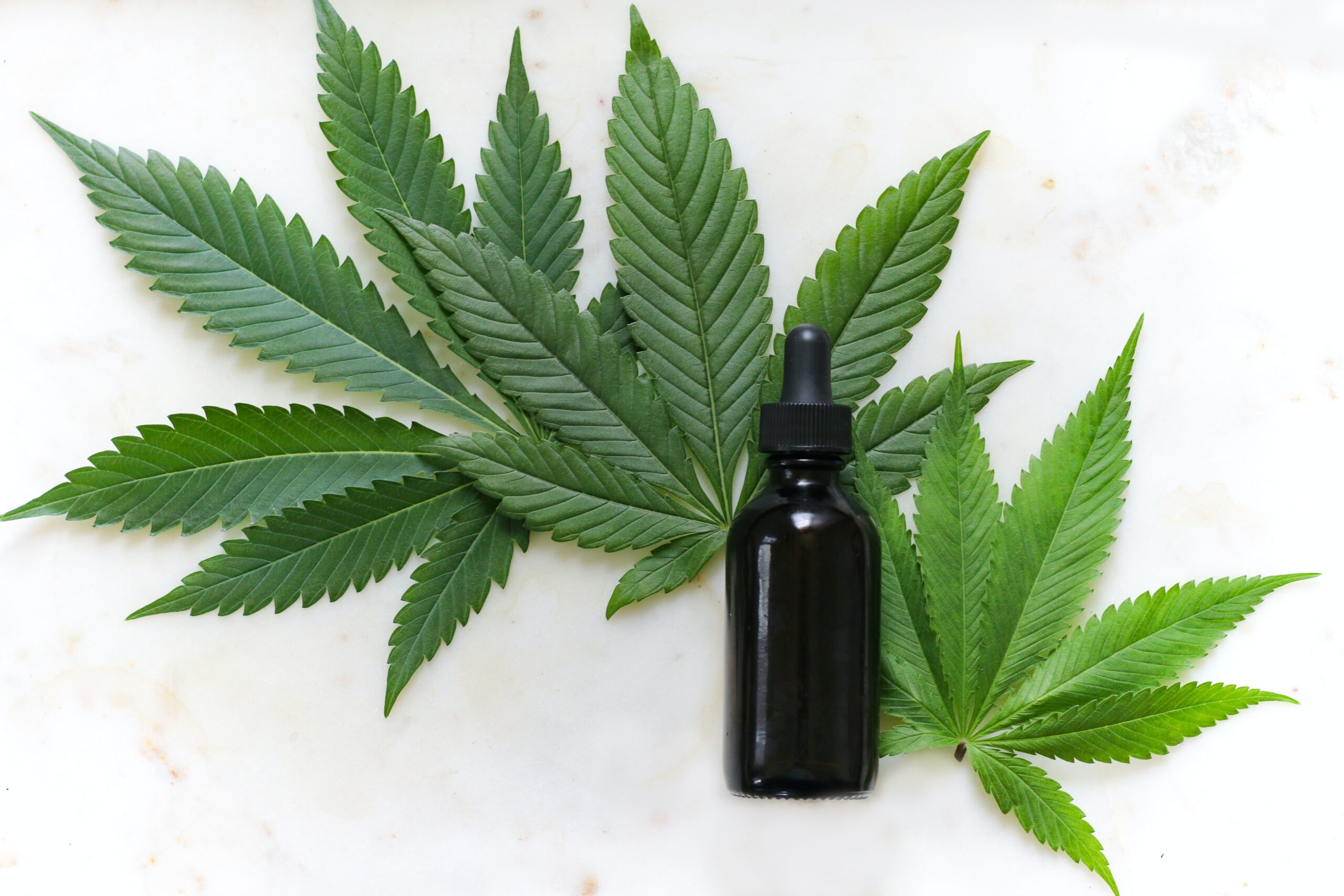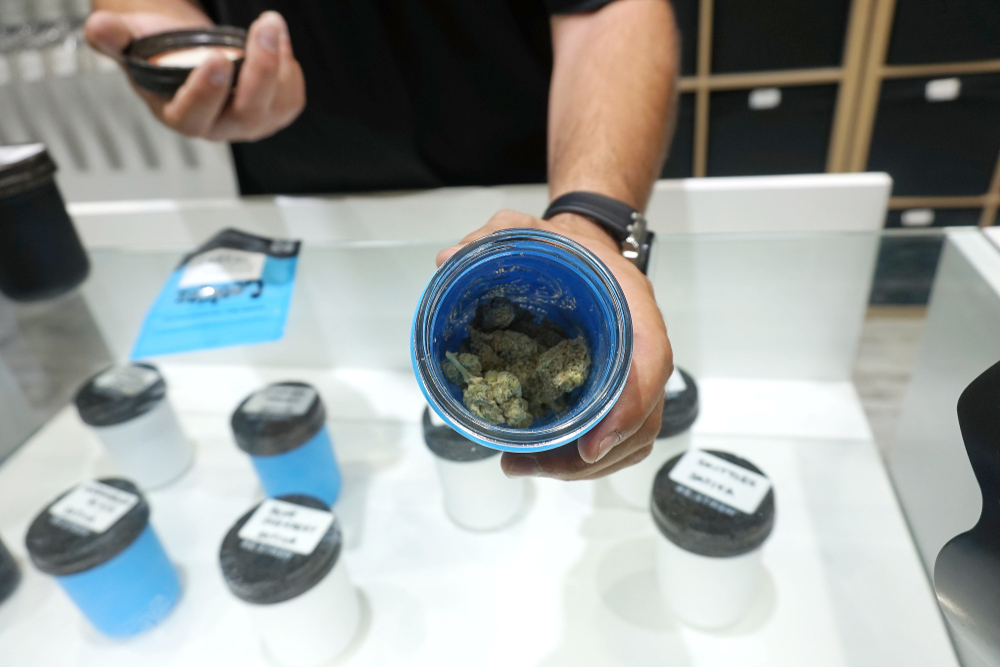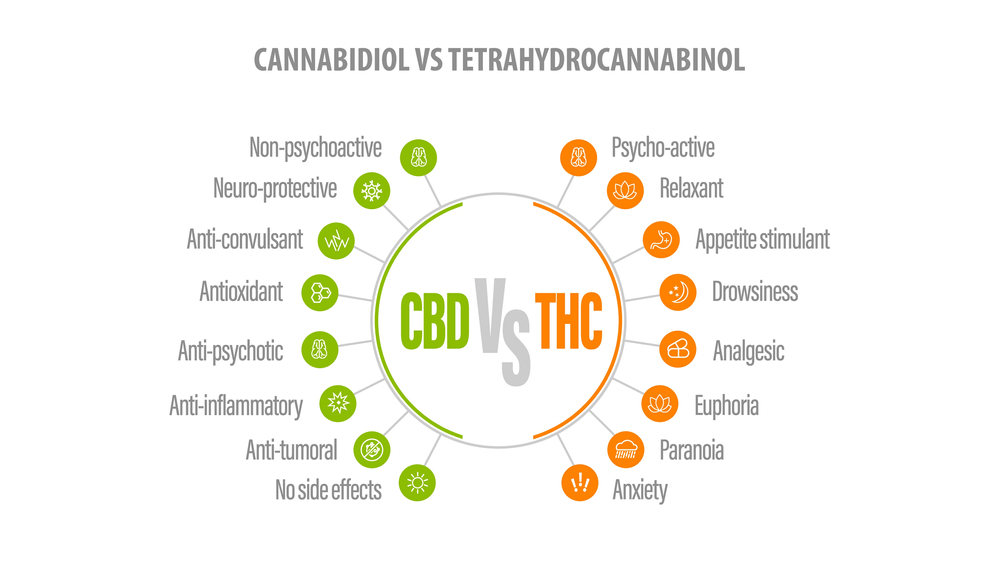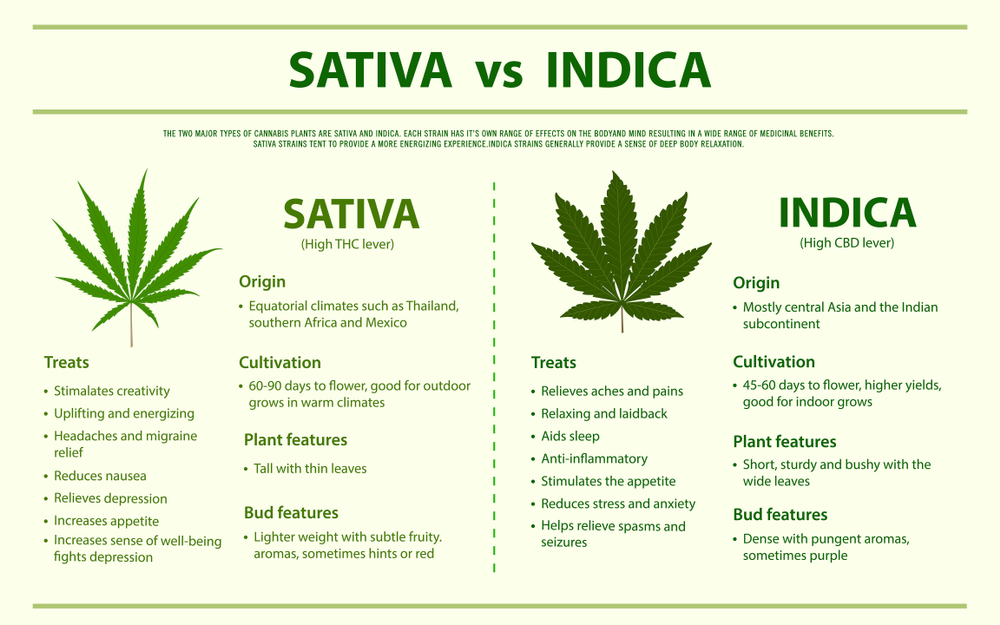If you’re just learning about CBD, you’ve come to the right place. In this blog, we’ll go over everything you need to know about CBD as a beginner, from what CBD is and its benefits to how best to use it. We’ll also discuss potential side effects you should be aware of and answer your most common questions about getting started. So get ready to dive in — let’s explore the world of CBD for beginners!
What is CBD?
CBD, or cannabidiol, is a naturally occurring cannabinoid — an organic compound — found in cannabis. It is one of more than 150 different types of cannabinoids that occur in the cannabis plant. Unlike the more famous cannabinoid, tetrahydrocannabinol (THC), CBD has no psychoactive properties. Therefore, it will not make you “high” or “stoned.”
However, CBD can be a little more complex than you’d think!
Hemp vs. Marijuana CBD
Right now, you’re probably wondering what’s the difference between hemp and marijuana in CBD. The answer is complicated, but in short:
- CBD is found in both hemp and marijuana plants. They belong to the same species but are grown differently and have widely different concentrations of THC.
- Hemp is low in THC concentration and high in CBD, while marijuana or cannabis is high in THC concentration and low in CBD.
- CBD can be extracted from either of the two plants. The only difference is that CBD products made from hemp are considered legal under US federal law, while those made from marijuana are not.
So, when you’re out and about looking for a CBD product, it’s important to check the label and make sure that it says that it contains hemp-derived CBD.
CBD vs. THC
Like CBD, THC is a significant cannabinoid found in cannabis. However, while both CBD and THC have the same chemical formula — C₂₁H₃₀O₂, they have distinct chemical structures that make their effects on the human body vastly different.
THC has psychoactive properties that give users the euphoria and relaxation typically associated with cannabis use. However, its effects are not limited to intoxication.
Legality of CBD
According to the US Agriculture Improvement Act of 2018, hemp-derived products are legal in the US under federal law, the condition being that a plant must contain less than 0.3% THC to be considered hemp. CBD products sourced from hemp are, therefore, legal across the US.
Any product with more than 0.3% THC is banned at the federal level but allowed by certain states, subject to conditions. Therefore, hemp plants used to extract CBD are the ones to go with if you want to stay on the right side of the law and for your overall wellness.
How CBD Works
Cannabinoids interact with ECS receptors throughout your brain, central nervous system (CB1), and immune system (CB2). Despite this known connection, the way CBD interacts with these receptor sites is still a mystery since it has no affinity to either CB1 or CB2.
Although there are varied views among scientific studies, some say that CBD hinders the enzymes which break down endocannabinoid receptors. As a result, this causes naturally-occurring cannabinoids to remain for longer periods of time and more effectively manage bodily functions. Conversely, others believe that we simply have yet to locate the specific receptors with which CBD has an affinity.
CBD’s unique characteristic of not binding with CB1 or CB2 receptors is the reason why it doesn’t cause any psychoactive effects. This remarkable discovery makes CBD a safe and viable option for treating medical issues and improving one’s lifestyle without engaging in recreational cannabis use.
Effects of CBD
CBD has a variety of potential applications and benefits. From mental health help to physical relief, there is good reason to explore the potential of this cannabinoid.
Benefits of CBD
As a non-psychoactive compound, CBD has a wide range of health benefits. For example, patients suffering from several conditions use CBD to help relieve their symptoms. Some of these conditions are:
- Chronic Pain: CBD is often prescribed to patients suffering from chronic pain to help manage their pain. CBD inhibits pain receptors and provides relief from discomfort and distress. Older patients with muscle pain or arthritis often take CBD oils or gummies to ease their discomfort.
- Insomnia: Seeking to achieve a balanced sleep-wake cycle? CBD may be the answer. Users report that taking CBD before hitting the hay helps them easily drift off into dreamland. So if you’re struggling with insomnia, finding a reliable CBD-based product may help you get back a balanced sleep-wake routine.
- Inflammation: Recent research has shown that CBD possesses anti-inflammatory properties and can help people who suffer from arthritis or spondylitis. People who regularly experience joint pain also use CBD to alleviate their symptoms.
- Mental illness: By easing the body and mind into a balanced state, CBD could potentially be an immense benefit to those struggling with mental health issues. Anxiety and depression are typically treated with pharmaceuticals that can cause serious adverse reactions, but not for naturally-occurring compounds such as CBD!
- Seizures: CBD has been known to treat seizure disorders and epilepsy, especially in children.
- Cancer treatment: CBD has been studied as a possible treatment for cancer to reduce tumor growth and relieve symptoms related to the disease.
As with anything else, there are side effects to be aware of with CBD.
Side effects of CBD
Common side effects include:
- Dry mouth.
- Poor appetite.
- Drowsiness
It should be noted — if you are taking any prescription medications, you should check with a health professional to see if it is safe to take CBD alongside them. Drugs with the same effects as CBD should not be mixed with CBD, especially in large quantities, as the effects might become hard to manage.
For example, sleeping pills, antidepressants, antihistamines, antipsychotics, and alcohol may lead to toxicity or other unwanted side effects. CBD should also be generally avoided if you are taking blood thinners.
Types of CBD
Let’s talk about types of CBD!
CBD oils
CBD oil is made by extracting CBD from the cannabis plant and diluting it in a carrier oil like coconut oil or essential oils. It can be taken sublingually by dropping a few drops under your tongue or adding them to a food or drink.
CBD Isolate
CBD isolate is simply pure CBD with no other cannabinoids, terpenes, or flavonoids present. This allows for a more concentrated dose and faster effects than most other CBD products.
Broad-Spectrum CBD
Broad-spectrum CBD contains a variety of cannabinoids, terpenes, and flavonoids, but it doesn’t contain THC. Broad spectrum CBD is ideal for those who don’t want any THC in their product but still want the full range of effects offered by the cannabis plant.
Full-spectrum CBD
Full-spectrum CBD contains all the naturally occurring compounds of the cannabis plant. This includes CBD, trace amounts of THC, CBC, CBG, and CBN. In addition, full-spectrum CBD products also contain various terpenes, flavonoids, vitamins, and trace minerals.
By using all the organic compounds of cannabis, full-spectrum CBD aims to achieve what is known as the “entourage effect.” This idea suggests that various components in this plant interact with one another and enhance its overall effects. Thus, allowing users to obtain holistic benefits from it.
How to Use CBD
CBD is available in various forms, from tinctures and capsules to topical creams and oils. Depending on your needs, you can choose the type that best fits your lifestyle. So let’s review the basics:
CBD Topicals
Topicals bring that localized relief directly to the spot where you feel it most. CBD topicals come in various forms, such as lotions, salves, and balms which can be applied directly to your skin.
Try Papa & Barkley’s CBD Releaf Patch, which microdoses relief for up to 12 hours, or Care By Design’s full-spectrum 1:1 Pain Cream containing CBD, THC, and other minor cannabinoids.
CBD Tinctures
Tinctures are a great way to get an exact dose of CBD. They come in small bottles with droppers so you can easily measure your desired dosage. They offer fast-acting relief and can be taken sublingually (under the tongue).
To calm your body and mind, you can try one of our favorite tinctures, Plain Jane CBD Drops by Yummy Karma. You could also go for VET CBD’s 20:1 Tincture, which uses premium quality CBD and organic extra virgin olive oil to deliver all the therapeutic benefits of CBD.
CBD Edibles
Are you looking for a way to discreetly and slowly consume CBD? Then, look no further! There is an abundance of delicious and inventive edible products infused with CBD that are sure to tantalize your taste buds. From sweet treats like gummies, cookies, chocolates, candies or drinks — the possibilities are endless when it comes to getting your dose of CBD.
Try Kanha’s 4:1 Peach CBD Gummies to feel the full effect of CBD’s anti-inflammatory and anti-anxiety properties.
CBD Capsules
Yet another wonderfully easy and precise way to get your daily dose of CBD is through capsules. They don’t taste like anything, and you don’t have to worry about measuring the exact dosage. Just grab a water bottle and pop one in.
CBD Bath Bombs
Oooh, you’re going to love this one! CBD Bath Bombs are the perfect way to relax and unwind after a long day. They come in various stimulating scents and provide not just physical but mental relief as well.
Best CBD Products for Beginners
Whether you’re looking for wellness products or just a complementary item to your daily routine, there are a ton of excellent CBD products out there for beginners.
- If you’re looking to try a full-spectrum product, a great CBD oil to start with is Cream of the Crop’s Full Spectrum Oil, which contains THC and CBD in a 2:1 ratio. It can be consumed sublingually or applied topically to experience its effects of relaxation, calmness, slight euphoria, and overall tranquility.
- Alternatively, you could start with Beauty Sleep by YK Drops, a non-psychoactive CBD-only tincture infused with passion flower, jujube, and magnesium that will help you fall asleep faster.
These two are just some of the products that can help you understand how your body responds to different kinds of CBD products. Then, based on your experience with them, you can decide which products to experiment with.
Tips for Taking CBD
To ensure a stress-free introduction to CBD, here are some useful tips that will help you along the way:
- Start low, go slow: It’s essential to start with minimal doses of CBD and work your way up until you feel comfortable with the amount.
- Full-spectrum or isolate: When taking CBD, research and decide what kind of product you want. Full-spectrum products contain a combination of over a hundred cannabinoids, including THC. On the other hand, isolate products contain CBD only and no other cannabinoids.
- Know the laws: It’s important to stay informed about state laws regarding cannabis and hemp-derived products to know what is legal in your area. Also, make sure to check your local regulations when it comes to purchasing CBD products.
- Read the label: Always double-check the actual CBD content in a product by reading its label and researching the brand. Likewise, ensure it’s using hemp-derived CBD and not marijuana.
With the right information, taking CBD will be a breeze.
FAQ
Is CBD legal?
As prescribed by the Agriculture Improvement Act of 2018, all hemp-derived products with a THC concentration lower than 0.3% are universally permissible in the United States. Therefore, this signifies that CBD extracted from hemp containing less than 0.3% THC is considered legal at a national level.
However, there are different rules at the state level regarding the possession, purchase, or use of CBD products. While some states have legalized CBD’s recreational and medicinal use, it continues to be banned in others. Check the legal status of CBD in your jurisdiction before using it.
Will I fail a drug test if I take CBD?
No, you can’t fail a drug test if you’ve taken CBD. That is because drug tests look for THC in your bloodstream, not CBD. THC is the psychoactive component of cannabis and is therefore monitored in drug tests.
However, if your cannabis product contains more than 0.3% THC, it might appear on the test. Therefore, it is always helpful to read the label on the cannabis product carefully to ensure that its THC levels are below 0.3%.
How much CBD should I take?
The appropriate dosage of CBD varies from person to person and depends on factors like age, weight, body chemistry, and the severity of any conditions you’re looking to aid. A typical starting dose is around 10 mg and can be increased gradually until you find the best amount.
What is hemp seed oil?
Hemp seed oil is a natural extract of hemp seeds that can be used for cooking, as a supplement, and even in personal care products. It’s known for its high concentration of beneficial fatty acids, vitamins, antioxidants, and other nutrients that make it an excellent source of nutrition.
So while it does contain trace amounts of CBD, it is not suitable for those looking to benefit from the therapeutic effects of CBD.
Say Hello to CBD!
We hope this beginner’s guide to CBD has helped give you the basics of CBD and how to use it. Now that you know everything you need to know to start, you can pick up your first cannabis product and begin your CBD journey!
Visit us at 1017 Sycamore Avenue in Vista. Our talented and trustworthy staff would happily guide you through our extensive menu and choose the perfect product for your needs.
Happy CBD’ing!
